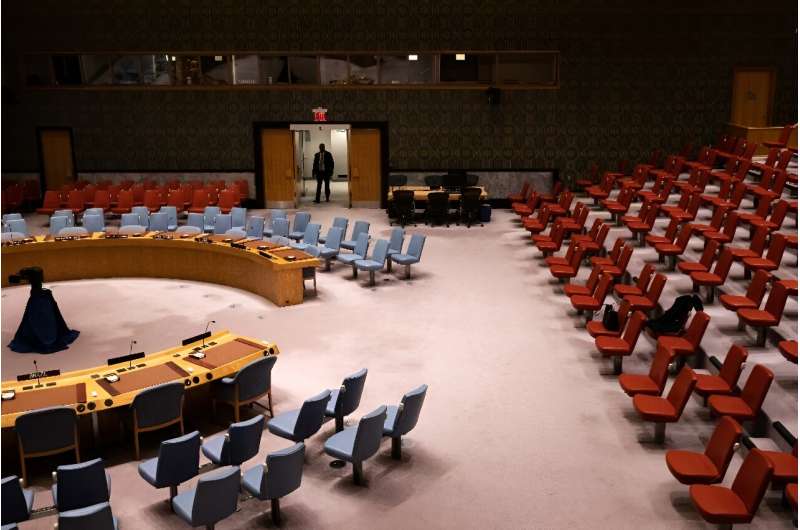This article has been reviewed according to Science X's editorial process and policies. Editors have highlighted the following attributes while ensuring the content's credibility:
fact-checked
reputable news agency
proofread
UN General Assembly calls for guidelines on AI's risks, rewards

The UN General Assembly on Thursday called for the development of a set of international guidelines to address the risks and benefits of artificial intelligence.
The resolution, co-sponsored by dozens of countries and adopted by consensus, emphasizes the necessity of guidelines "to promote safe, secure and trustworthy artificial intelligence systems," while excluding military AI from its purview.
On the whole, the resolution, prepared by the United States, focuses more on the technology's positive potential, and calls for special care "to bridge the artificial intelligence and other digital divides between and within countries."
It also seeks "to promote, not hinder, digital transformation and equitable access" to AI in order to achieve the UN's Sustainable Development Goals, which aim to ensure a better future for humanity by 2030.
"This resolution establishes a path forward on AI where every country can both seize the promise and manage the risks of AI," US Vice President Kamala Harris said in a statement.
According to Richard Gowan, an analyst at the International Crisis Group, "the emphasis on development is a deliberate effort by the US to win goodwill among poorer nations."
"It is easier to talk about how AI can help developing countries progress rather than tackle security and safety topics head-on as a first initiative," he said.
'Male-dominated algorithms'
The resolution does highlight the technology's threats when misused with the intent to cause harm, and also recognizes that without guarantees, AI risks eroding human rights, reinforcing prejudices and endangering personal data protection.
It therefore asks member states and stakeholders "to refrain from or cease the use of artificial intelligence systems that are impossible to operate in compliance with international human rights law or that pose undue risks to the enjoyment of human rights."
Warnings against the technology have become increasingly prevalent, particularly when it comes to generative AI tools and the risks they pose for democracy and society, particularly via fake images and speech shared in a bid to interfere in elections.
UN Secretary-General Antonio Guterres has made AI regulation a priority, calling for the creation of a UN entity modelled on other UN organizations such as the International Atomic Energy Agency (IAEA).
He has regularly highlighted the potential for disinformation and last week warned of bias in technologies designed mainly by men, which can result in algorithms that ignore the rights and needs of women.
"Male-dominated algorithms could literally program inequalities into activities from urban planning to credit ratings to medical imaging for years to come," he said.
Gowan of the International Crisis Group said he didn't "think the US wants Guterres leading this conversation, because it is so sensitive" and was therefore "stepping in to shape the debate."
A race is underway between various UN member states, the United States, China and South Korea, to be at the forefront of the issue.
In October, the White House unveiled a set of measures intended to ensure that the United States leads the way in AI regulation, with President Joe Biden insisting on the need to govern the technology.
"As this technology continues to evolve, the United States will continue to lead and work with partners throughout the international community," Harris said.
© 2024 AFP



















